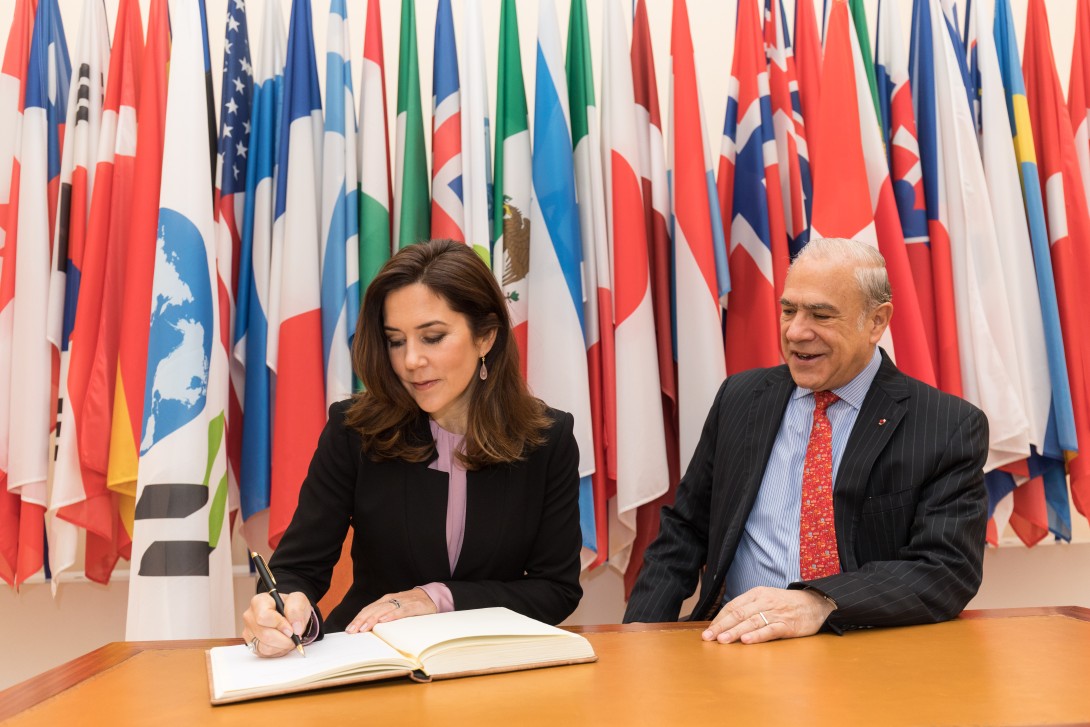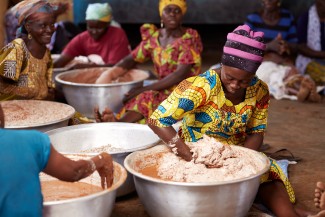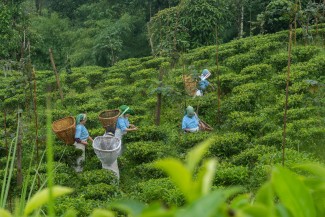On 5 April the Organisation for Economic Co-operation and Development (OECD) opened its doors to welcome over 500 participants, including government officials, private sector, civil society and academia, to brainstorm on what needs to be done to empower 4.6 billion women and youth worldwide.
The discussion brought to light real life examples of a challenging environment in fragile and conflict affected contexts where more than half of the world’s poor will be living by 2030. Speakers ranging from royal families to CEOs, to youth ambassadors, to social entrepreneurs shared their stories what economic empowerment of women and youth meant for them.
ACCESS TO EDUCATION
Ms Noella Muhamiriza, the Girl Ambassador for Peace for the Democratic Republic of the Congo urged participants to place gender equality at the center of elementary school education, working with the local people on the ground who understand the local culture. “In our traditional culture family tends to be above the law. Recently a teenage girl was stabbed in the heart by her uncle three times and died. It is assumed that the family will resolve the issue,” explained Noella.
“In post-conflict countries there is a loss of moral compass. That means that everybody’s behaviour is in survival mode. If it means that they have to kill somebody or step on the rights of somebody, it does not matter. They are going to survive and that is their goal,” said H.E. First Lady of Aghanistan Rula Ghani. She highlighted the existing gap between carefully crafted legislation on gender equality in Afghanistan and the implementation. “Our education system is not doing very well — we need to improve our education for boys and girls.”
Her Royal Highness Crown Princess Mary of Denmark also referenced this issue, saying, "greater gender equality is linked to a higher level of education, better health, higher per capita income, stronger competitiveness and more inclusive and rapid economic growth.”

ACCESS TO FINANCE
Her Royal Highness Princess Abze Djigma of Burkina Faso spoke about how technology can mitigate conflicts and support access to finance thereby creating opportunities for women and young people. “Women are the first to pay back loans. To me this is AAA, but they do not benefit on the rate of AAA. How do you bring businesswomen on board if you do not change the banking system?"
Blockchain technology is there for small businesses. “With this there is no corruption because it checks where the money goes with a rate upfront that we agreed upon, and it also checks whether the goods and services are delivered,” said Princess Abze Djigma.
VOICE IN PEACE TALKS
“Recent research undertaken in Nepal, Bangladesh, the Democratic Republic of the Congo and Ethiopia has looked at the linkages between gender equality, conflict and fragility. We found that women’s active participation in peace-building and state building contributes to sustainable peace and resilience,” said OECD Secretary General Angel Gurria in his remarks.
“One important part of Swedish Feminist Foreign Policy was to appoint a board of female peace negotiators - women that could lead by example and find new women who can be part of negotiating teams in different conflicts,” said Carin Jämtin, Director General of Swedish International Development Cooperation.
“When women are included in peace processes there is a 35% increase in strength of peace agreements lasting at least 15 years,” noted Jorge Moreira da Silva, Director of the Development Co-operation Directorate, OECD.
Watch the recording of the OECD Global Forum on Development here.
If you would like to reuse any material published here, please let us know by sending an email to EIF Communications: eifcommunications@wto.org.


